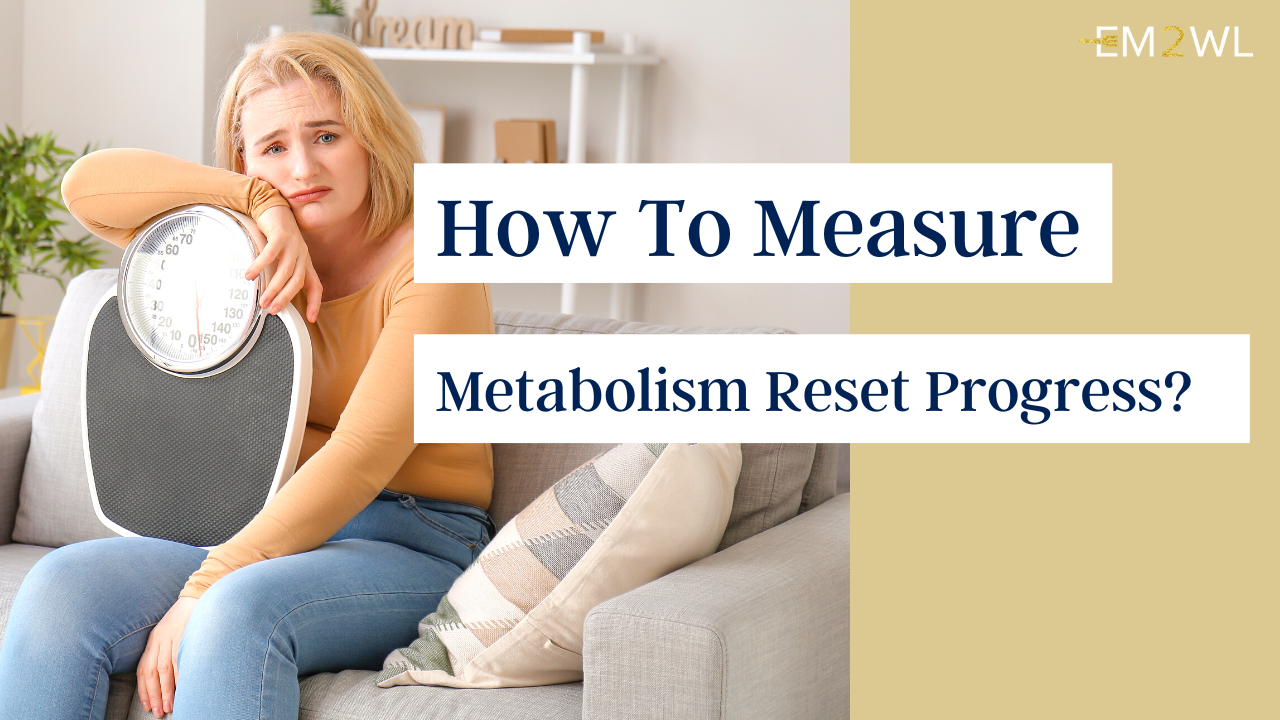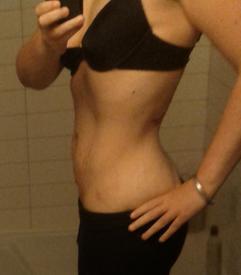Tempted by the bombardment of “get thin quick” diets everywhere you turn? Don’t fall for it! Read on as Team EM2WL’s Becca interviews “Diet Recovery” Author, Matt Stone, about dieting: the dangers, warning signs, and healing process for diet damaged metabolisms.
Can you explain how you became interested in metabolic health?
When I first started doing health research I just tried to get my hands on as much information as possible. I kept hearing the name Broda Barnes mentioned repeatedly. After seeing his name in three or four books I finally decided to look into his work more carefully. I read all of his books and became very interested in the metabolism idea, especially considering two very important factors:
1) I was communicating with a lot of very health-conscious hardcore nutrition freaks that were suffering from symptoms of a low metabolic rate, and it seemed obvious that it had something to do with the health practices they were so obsessively engaged in.
2) I had gone through something in my own life that completely shut down my metabolic rate, so I immediately recognized the validity of the idea that metabolic rate plays a role in the proper functionality of virtually every system in our bodies.
That experience was one of semi-starvation, in part inspired by wanting to be “lean and healthy.” Reading extensively about starvation, including picking my way carefully through Ancel Keys’s 1,300-page book *The Biology of Human Starvation*, provided even more confirmation.
I’ve heard you say, “The perfect diet is very unhealthy.” What do you mean by that? How would you define “healthy eating?”
I think the mindset and mentality of perfection is unhealthy, especially as applied to personal health practices. Every other creature on earth relies completely on instinct to keep
I can’t really define healthy eating. It is all relative to a person and his or her immediate hour-to-hour needs. Every person and every day requires different things to be considered “optimal.” I couldn’t even tell a person how much water to drink without taking into considering the amount of exercise they have done that day, the air temperature, their metabolic rate, how much salt they ate in their last meal, the water content of their last meal, and more. And that’s just talking about water. Food is much more complex than that.
In your opinion, are there certain markers of metabolic health we should be looking for? How can we make sure we are keeping our metabolism healthy if our goal is weight loss?
Well first of all I don’t know if weight loss should consciously be a “goal.” A goal implies that are forcing your body to do something whether it wants to or not. In my experience, most who lose weight completely shut down their metabolic health in the process because they are too excited about the weight loss to take note of obvious signs of metabolic doom. The most common signs of metabolic rate falling too low, in my experience, are:
1) Reduced body temperature below 98.6 degrees F or about 37 degrees C.
2) Cold hands and feet.
3) Dry skin, especially around the hands and feet.
4) Drop in sex drive or sexual function.
5) Dry hair and maybe even some hair loss.
6) Constipation and other bowel problems related to a decrease in bowel transit speed such as reflux and bloating.
7) Changes in mood—either increased anxiety/aggression or depression or greater volatility between extreme mental states.
8) Insomnia, especially that ominous, consistent 2-4am wake-up and difficulty falling back to sleep. Those who can still sleep a lot don’t feel particularly rested no matter how much they sleep.
9) Frequent urination, or noticing that a small amount of fluid is enough to send you to the bathroom to pee every 15 minutes.
10) Intensified food cravings (although in some a reduced metabolic rate can shut down appetite, so this is not as consistent as some of the others).
If this sounds like you, don’t even think about trying to lose weight in your current state. If your attempts at losing weight have brought some or all of these things on, stop what you’re doing immediately.
What does low body temperature and being cold all the time have to do with metabolic health?
That’s just the body allocating less energy to staying warm. It’s one of the first things the body sacrifices when it is trying to conserve energy (many times because it perceives a food shortage or other stress). A drop in body temperature of 1 degree is enough for the body to save hundreds of calories throughout a 24-hour period. I see temperatures in the low 90’s in some of the people I communicate with frequently. The animal with the lowest metabolic rate in all of the animal kingdom is the sloth, with a resting body temperature as low as 86 degrees F. Do a little research on
the characteristics that define sloth-like behavior and you’ll see some parallels to the changes humans experience when their metabolic rate falls and the body starts to conserve energy.
Could you explain how foods have heating or cooling properties, and what this means for our metabolism?

What is “radical refeeding?” Which individuals need to go through this phase? What role does weight gain have in recovery from dieting?
I’m not sure what “radical refeeding” is. It sounds like it probably involves a skateboard, a halfpipe, and a buffet, lol. I usually call it “rest and refeeding,” and it’s really not all that radical. You just want to achieve a consistent surplus of calories and sleep for several weeks to a few months to encourage the body’s cells to ramp up their energy production (i.e. increase metabolism). People who demonstrate a low body temperature and several signs of a reduced metabolic rate such as the ones discussed above usually get the most benefit from it.
It typically does involve some gain in body fat, followed by a gain in lean body mass, followed by complete weight stabilization eating as much as you want with or without exercise. The gain in body fat is the most important, as an increase in body fat increases the hormone leptin, and this sends a signal to the brain that triggers a big rise in metabolic rate and drop in appetite. The process works essentially the same whether a person is fat or thin. If your body temperature is low and you have some signs of a low metabolic rate, starving yourself and exercising more from that point is most likely to make matters worse and actually backfire long-term.
What role does stress play in our nutritional requirements and how do we adapt our dietary needs to stressful circumstances?

It’s better to engage in anti-stress activities like warm baths, massages, and extra sleep than it is to try to avoid those types of food under stress. In fact, if you feel strong cravings for those foods, it is not without reason and you should obey them. If you feel that eating those foods is unhealthy or does harm to you, avoid the situations and circumstances that strongly compel you to eat them. Sometimes it’s as simple as eating a bigger breakfast or going to bed earlier. But you can tap on your forehead like a lunatic if you want to, haha.
You say, “You have to solve your weight problem to lose weight, not lose weight to solve your weight problem.” Can you clarify what this means in real life?
Well I’ve already written a lot so I’ll give you the short answer to what otherwise could be a short novel. Intentional weight loss means to actively restrict your diet or burn calories through exercise to force a calorie deficit and lose weight. It has a very high failure rate, and many, such as obesity scholars like Paul Campos and Linda Bacon, believe that intentional weight loss can lead to an increased risk of health problems such as heart disease, diabetes, and even the very obesity people are trying to avoid with this approach. I have always found this to be true personally. Any attempts at losing fat always resulted in increased fatness long-term, despite good results initially.

The solution is to stop thinking about it so much and go for more of a spontaneous drop in body fat by improving your personal self-care practices. More nutritious food, better sleep, better relationships, more inspiring/fulfilling work and hobbies, and more time outdoors for starters.
Of course, there is a whole psychological component to it as well. Negative self-image is a powerful stressor, and stress prevents fat loss—even encourages fat gain. If you aren’t upset and ashamed of how you look, you’re much more likely to actually lose fat. Thus, it’s important to resolve body image issues BEFORE losing weight.
And trust me, a pound lost with hard work is likely to come back (because of the body’s reaction to that suffering). A pound lost effortlessly and spontaneously is likely to never return. Anything you do to lose weight should be as easy as it can possibly be and still deliver results.
Here, I’ll go ahead and put some quotes around that and my name so everybody reading this can paste that right onto Twitter and Facebook in early January when everyone else is doing their self-deprecating resolution thing…
“Anything you do to lose weight should be as easy as it can possibly be and still deliver results.” ~Matt Stone; www.180degreehealth.com
How can someone learn more about the resources you offer?
My information is very easy to obtain and is free. Go to my website and you can get my free 90-day eCourse on raising metabolic rate, which will tell you everything you need to know to raise your metabolic rate successfully and why it’s so important to do so) and get my books on the subject for free as well. And that’s www.180degreehealth.com.
 “With a high metabolic rate, EVERYTHING works better.”
“With a high metabolic rate, EVERYTHING works better.”
Matt Stone is an independent health researcher, #1 Amazon bestselling author of more than 15 books, and the founder of 180DegreeHealth, a controversial website that has challenged the status quo on health with a combination of cutting-edge science and radical common sense since 2006.
Are you curious about how the process works, or wondering what's in our Starter Kit E-Book? START HERE. We'll send you a free breakdown of the basics, exclusive videos explaining why everything that you've learned about diets have only led you astray, and an action plan to take your life back immediately.
No worries, we hate spam too!
Discover more from Eat More 2 Weigh Less
Subscribe to get the latest posts sent to your email.






In full agreement…and empathetic thoughts to a kindred soul Walter!..I had +/- an identical scenario…crashing after two years of intermittent fasting…Alas…I am at the point of desperately trying to obtain a functioning level of energy…and my searches for an answer to this dilemma involving severe disordered eating have led me to the very sane “phood philosophies” of Mr. Matt Stone (180 Degree Health) and Gwyeth’s “Your Eatopia” sites….brilliance all-around…nourishing soul, mind and body. I have found a glimmer of hope in this intelligence concerning what constitutes “true nourishment”…as in listening…really listening to one’s own “cues” …and then responding. I had a very major problem with Paleo when my own inner voice wanted a nutrient that was not deemed “Paleo-friendly”…and felt I must be “weak” or not “up-to-Paleo-standards”…when I “succumbed” to an item that was “off-the-list”!!…So many rules…regulations…and feelings of abject failure. I have to believe that cave-men did not spend countless hours, days and months…even years …ruminating over what would eventually enter their mouths in order to nourish the body.
What about the role of lab tests in the pursuit of recovering health? What does one do when they feel better but the lab values are moving in the wrong direction?
In my case, I had great numbers (standard lipid profile, Hgb A1c, and NMR LipoProfile) eating a Paleo-ish/Low-Carb-ish diet. Plenty of saturated fats, liberal use of salt, limited fruit, and no grains or legumes.
This was great for a couple of years, until I started doing more-and-more exercise and going higher on fat and even lower on carbs. Then, I added-in Intermittent Fasting. Eventually, I crashed.
After months of trying to restore my energy, I switched to lots of green smoothies and fruit, no added oils or salt, no animal foods, and started eating grains and legumes. After three months on this eating plan, I had the same tests performed again. While feeling better, nearly every number was worse.
What a kick in the pants.
My preference is to avoid most animal foods (except perhaps eggs) and eat lots of fruit and grains and cereals. But, it seems that doing so puts me at higher risk for cardiovascular disease.
What’s a person to do?
For me, Paleo and Low-Carb led to disordered eating — being obsessive and compulsive about food and exercise. While there were some good things to come out of it (learning a lot about the body, food quality, focusing on sleep, etc.), overall, I think it was a net loss. This is my own personal experience, of course.
I welcome all comments and thank you for reading.
Walter